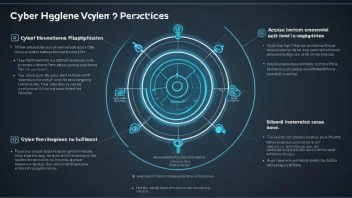As the online gaming industry continues to evolve, ensuring the security and integrity of player data and transactions has become paramount. With millions of users engaging in real-time gaming experiences, the need for robust security measures is more pressing than ever. Hash functions play a crucial role in this landscape, serving as the backbone for various security protocols that protect player information, enhance data integrity, and foster trust between players and gaming platforms. This article delves into the role of hash functions in securing online gaming platforms, exploring their applications, benefits, and real-world implementations.
Understanding Hash Functions
A hash function is a mathematical algorithm that transforms input data of any size into a fixed-size string of characters, which is typically a sequence of numbers and letters. This output, known as a hash value or digest, is unique to each unique input. The primary characteristics of a good hash function include:
- Deterministic: The same input will always produce the same hash output.
- Fast Computation: Hashing should be efficient and quick.
- Pre-image Resistance: It should be computationally infeasible to reverse-engineer the original input from its hash output.
- Collision Resistance: It should be unlikely for two different inputs to produce the same hash output.
- Small Changes Yield Different Hashes: Even a minor change in the input should result in a significantly different hash.
Applications of Hash Functions in Online Gaming
Hash functions serve several critical functions in online gaming platforms:
1. Data Integrity
One of the primary uses of hash functions is to ensure data integrity. In online gaming, player actions, game states, and transactions need to be accurately recorded and stored without tampering. By generating a hash for each piece of data, platforms can verify that the data remains unchanged over time. If a user manipulates the data, the hash value will differ, signaling a potential breach or error.
2. Secure Transactions
Online gaming often involves transactions, such as in-game purchases or deposits. Hash functions are critical in securing these transactions. When a player initiates a transaction, the platform can create a hash of the transaction details and store it along with the transaction record. This ensures that the transaction is not altered after it has been processed, protecting both the player and the platform.
3. Password Storage
Passwords are a significant vulnerability in any online system, and gaming platforms are no exception. Hash functions are widely used to store player passwords securely. Instead of saving passwords in plain text, platforms can hash the password and store only the hash value. When a player logs in, the entered password is hashed, and the generated hash is compared to the stored value. This method protects user passwords, as even if the data is compromised, the actual passwords remain secure.
4. Fairness in Gaming
Hash functions can also contribute to fairness in gaming. Many online games utilize random number generators (RNGs) to determine outcomes. By hashing the seed values used for RNG, platforms can provide players with a verifiable method to ensure that game outcomes are not manipulated. This transparency helps build trust between players and developers.
Implementation of Hash Functions
Implementing hash functions in online gaming platforms involves choosing the right algorithm and integrating it into various processes. Some widely used hash algorithms in the industry include:
- SHA-256: Known for its strong security features, SHA-256 is a popular choice for hashing passwords and transaction data.
- SHA-1: Although considered less secure than SHA-256, SHA-1 is sometimes used for legacy systems.
- Bcrypt: A hashing algorithm designed specifically for securely storing passwords, incorporating a salt to protect against rainbow table attacks.
When integrating hash functions, developers must also consider the use of salts—random data added to the input of the hash function to ensure that even identical inputs produce unique hash outputs. This practice further protects against pre-computed attacks.
Case Studies
Several online gaming platforms have successfully implemented hash functions to enhance their security:
1. Ethereum-Based Games
Blockchain-based gaming platforms, such as those operating on Ethereum, leverage cryptographic hash functions to secure transactions and ensure data integrity. Each transaction on the blockchain is hashed and linked to the previous block, making it virtually impossible to alter historical records without detection.
2. Online Casinos
Online casinos frequently use hash functions to ensure fair play. By hashing the results of games and making the hash values public, players can verify the outcomes independently, fostering trust in the platform.
Challenges and Considerations
While hash functions provide significant security benefits, there are challenges to consider:
- Computational Limitations: As online gaming grows, the demand for faster hashing algorithms increases. Developers must balance security with performance.
- Emerging Threats: Cybersecurity threats are constantly evolving. Keeping up with the latest developments in hashing technology is crucial.
Conclusion
Hash functions are integral to securing online gaming platforms, playing a vital role in data integrity, transaction security, password storage, and ensuring fairness in gaming. As the industry continues to expand, the importance of robust security measures cannot be overstated. By understanding and effectively implementing hash functions, gaming platforms can foster trust and protect their users from potential threats. As technology advances, ongoing research and development in cryptographic hashing will be essential to address emerging challenges and safeguard the future of online gaming.






